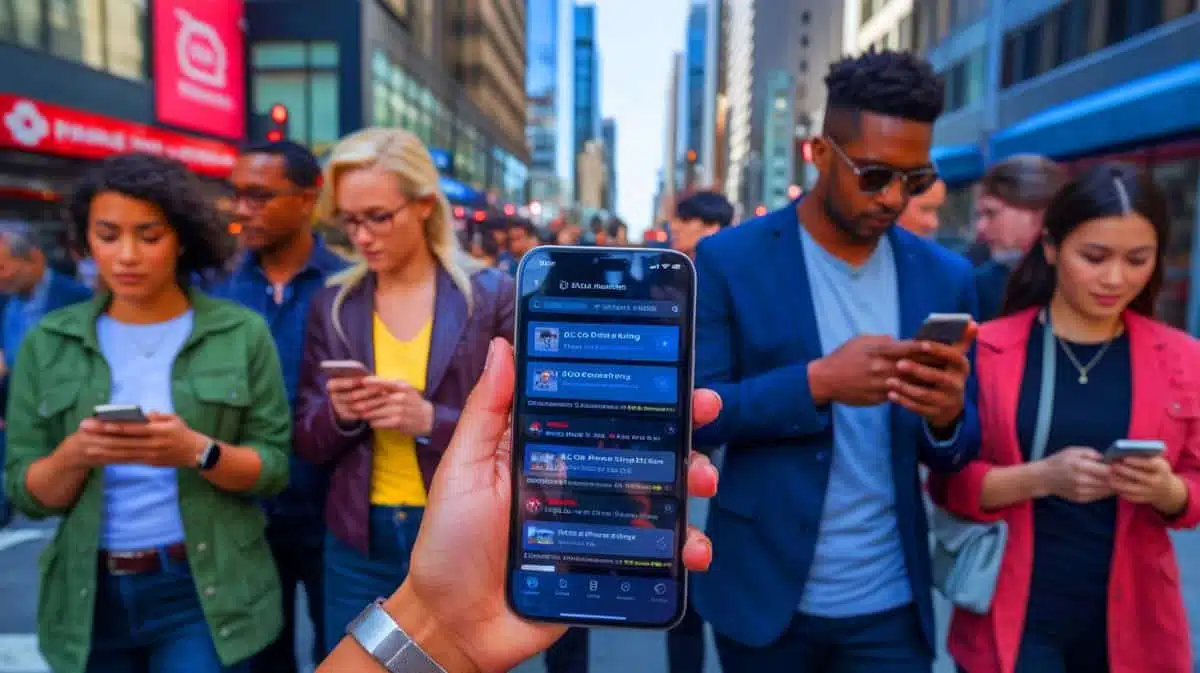| IN A NUTSHELL |
|
In an era where technology frequently intersects with socio-political issues, the emergence of ICEBlock has sparked significant public interest and controversy. This app, which allows users to report sightings of U.S. Immigration and Customs Enforcement (ICE) officers, has quickly climbed to the top of Apple’s free app charts. The application’s rise to popularity is fueled by public curiosity and outcry from political figures, highlighting its role in the ongoing conversation about immigration enforcement in the United States. As debates intensify, ICEBlock stands as both a tool of empowerment and a subject of significant backlash.
ICEBlock: Early-warning Tool Born of Personal Concerns
ICEBlock was developed by Joshua Aaron, a Texas-based developer, and was released in April. It provides a unique service for iPhone users: the ability to report sightings of ICE agents by tapping a map and dropping a pin. Users within a five-mile radius receive alerts, and they can attach notes detailing officers’ clothing or vehicle specifics. Reports automatically expire after four hours, ensuring that information remains current. Importantly, to prevent misuse, sightings cannot be logged outside the user’s current radius.
Aaron emphasizes that the app collects no personal identifiers, such as device IDs or IP addresses, a claim verified by TechCrunch. An Android version is not on the horizon, as the operating system would require data collection that could jeopardize user safety. Aaron’s motivation stems from a desire to help those he perceives as vulnerable, drawing parallels between current events in the U.S. and historical periods of oppression. His conversations with Holocaust survivors have further inspired his commitment to creating a protective tool against perceived tyranny.
“They Hit Like Ghosts in the Sky”: How F-22 Raptors Shocked ISIS in Their First Combat Operations
Backlash from Washington
The app remained relatively unknown until a CNN segment brought it into the national spotlight. The White House, through press secretary Karoline Leavitt, criticized the report, describing it as an incitement to violence against ICE officers. Leavitt claimed that agents are experiencing a dramatic rise in assaults and emphasized that they are simply performing their duties to maintain public safety.
Echoing these concerns, ICE Acting Director Todd M. Lyons insisted that ICEBlock creates a dangerous environment for federal law enforcement officers. He accused CNN of endangering officers’ lives and facilitating the evasion of U.S. law by criminal aliens. Lyons questioned whether the network’s coverage was merely reckless journalism or a form of overt activism, further complicating the political discourse surrounding the app’s impact.
Culture and Controversy: The App’s Meteoric Rise
ICEBlock’s rapid ascent in popularity can be attributed to its timing and the intense public discourse surrounding immigration enforcement. The app topped Apple’s free-to-download charts, reflecting a significant demand for tools that offer a sense of security and community awareness. Public curiosity and controversy have played crucial roles in its rise. The app has become the most downloaded free social-networking app for iOS devices in the U.S., and the third-most-downloaded app overall, according to Apple’s public rankings.
This cultural phenomenon underscores the deep divisions and heightened emotions that characterize the immigration debate in America. The app’s success story is not just about technology but also about the broader societal tensions it embodies. As ICEBlock continues to capture public attention, it serves as a testament to the power of technology in shaping political and cultural landscapes.
Implications for Privacy and Security
ICEBlock raises important questions about privacy and security in the digital age. While the app claims to protect user anonymity, the potential risks of misuse remain a concern. The decision not to develop an Android version highlights the delicate balance between offering a useful service and safeguarding user data. Privacy concerns are at the forefront of discussions about the app’s design and functionality.
Moreover, the backlash from government officials highlights the tension between technological innovation and law enforcement operations. As the app continues to evolve, it prompts a broader conversation about the ethical implications of digital tools in society. How can developers ensure that their creations are used responsibly, and what measures can be implemented to protect both users and public safety officers?
As ICEBlock continues to navigate the complex intersection of technology, privacy, and public policy, it remains a focal point in the ongoing debate about immigration enforcement in the U.S. The app’s journey from obscurity to prominence invites reflection on the role of technology in shaping our world. What future innovations might emerge from this intersection, and how will they influence our society?
Did you like it? 4.5/5 (26)







Is ICEBlock available on Android yet? 🤔
I’m worried about the safety of the officers. Does this app exacerbate tensions?
Thank you, Joshua Aaron, for standing up for vulnerable communities! 🙏
ICEBlock is a game-changer in the immigration debate. But at what cost?
How do you ensure that the reports are accurate and not used maliciously?
Privacy is paramount. Glad to see the app doesn’t collect personal data.
Another tool for activism, or a genuine safety measure? 🤷♂️